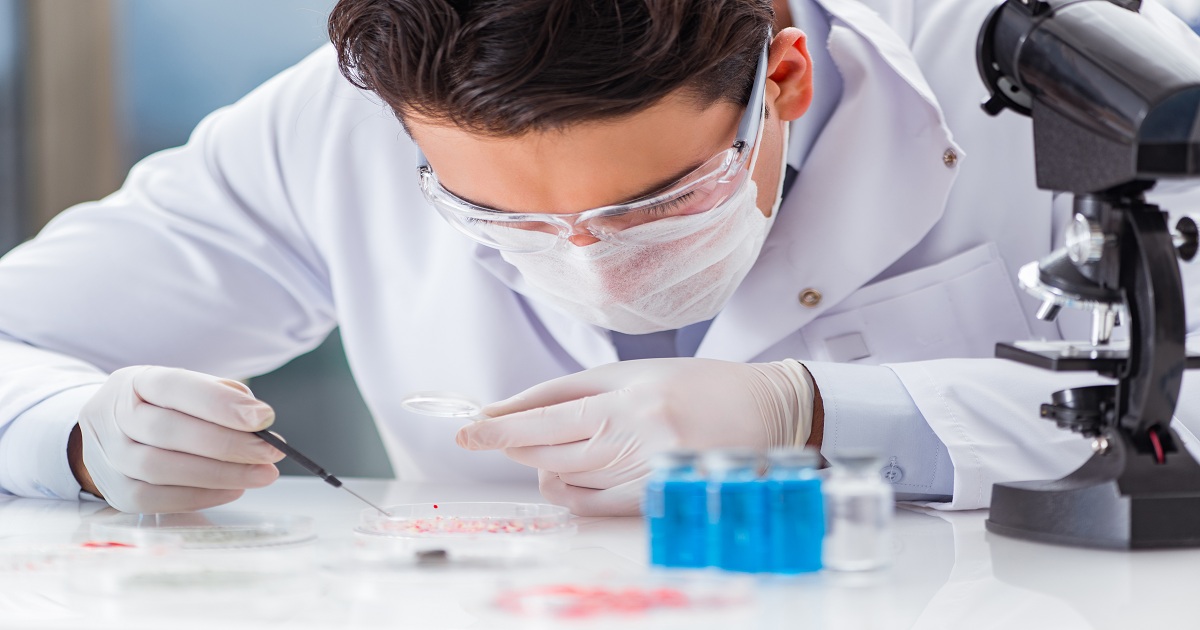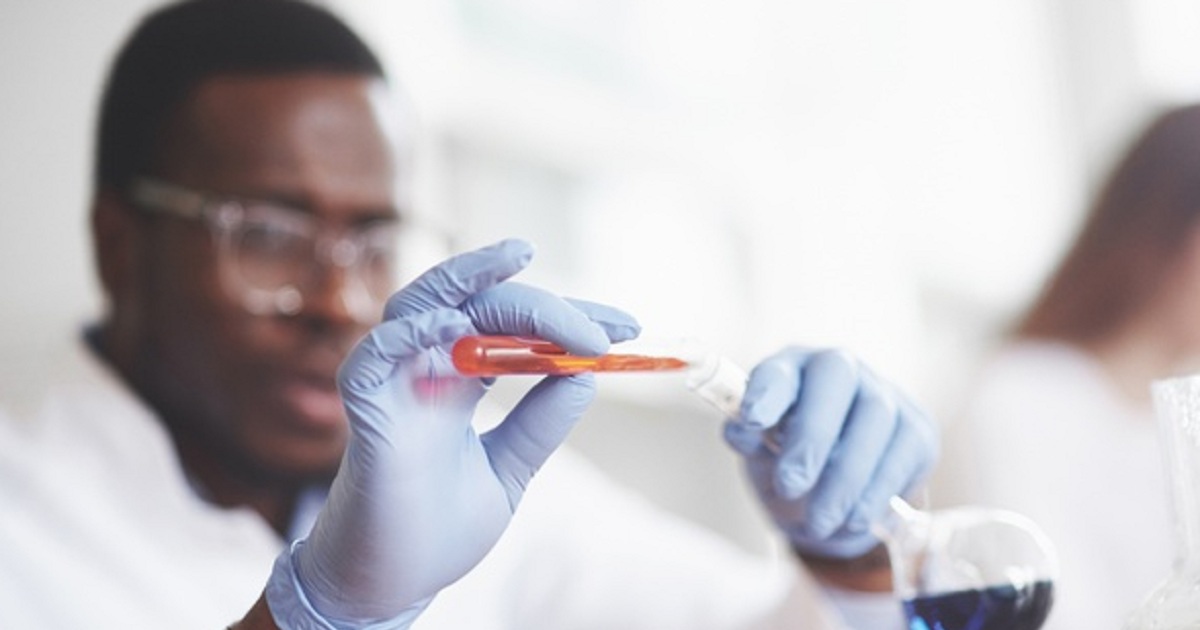
Medical
Harris-Stowe State University, United Health Foundation | November 20, 2021
The United Health Foundation, the philanthropic foundation of UnitedHealth Group (NYSE: UNH), has awarded a $2 million, three-year grant to Harris-Stowe State University to create a bioinformatics program for undergraduate students at the historically Black university located in St. Louis. Bioinformatics is an emerging field that combines science, physics, math and biology to aid in the diagnosis, treatment and discovery of new therapeutic advancements. An example of bioinformatics is the use of computer analysis on the Human Genome Project, which has recorded the 3 billion basic pairs of the human DNA system.
HSSU will develop a new undergraduate program to train students for careers as bioinformatics professionals. HSSU will use the support to
Develop new curricula combining coursework and experiential learning opportunities.
Expose high school students in surrounding school districts to the field of bioinformatics through a summer bioinformatics “boot camp” program.
Offer academic scholarships for up to 25 students each year.
“In the past decade, Harris-Stowe State University has emerged as a leader in training students for high-tech careers. This new program will help us to build on that important work, as well as continue to fulfill our mission of serving historically underrepresented students. Bioinformatics is a rapidly growing field of study, and it is vital for all people to play a role in its advancement.”
Dr. LaTonia Collins Smith, interim president of HSSU
Studies have shown that there is a substantial gap in the number of diverse college students trained in biomedical sciences. Black, Hispanic and Native American people account for only 7.1% of the employed biological/biomedical and life sciences workforce, according to the National Science Foundation. A diverse health workforce helps provide personalized, culturally competent care to an increasingly diverse population.
“The United Health Foundation is honored to collaborate with Harris-Stowe State University to increase the diversity of the life sciences workforce. We are excited about HSSU training students who will make discoveries, develop therapies and advance health care for all,” said Patrick Quinn, CEO of UnitedHealthcare in Missouri, a UnitedHealth Group company. “This partnership illustrates UnitedHealth Group’s commitment to health equity and to building a diverse health workforce reflective of our society.”
The commitment in Missouri is one of many ways UnitedHealth Group is working to advance health equity by diversifying the health workforce of the future. The United Health Foundation’s Diverse Scholars Initiative, for example, partners with nine nonprofit and civic organizations and has provided over 3,000 scholarships to diverse students studying medicine and public health across the U.S. since 2007. Optum Technology, part of Optum which is a UnitedHealth Group company, offers a mentor-led STEM program that has provided science, technology, engineering and mathematics training to over 7,000 diverse and underrepresented students at 103 middle and high schools since 2019. To learn more about the company’s commitment to health equity as well as its efforts to build healthier communities, improve outcomes and create a modern, high-performing health care system.
About Harris-Stowe State University
For over 160 years, Harris-Stowe State University (HSSU) has served the historically underrepresented. As a Historically Black College and University, HSSU is strongly committed to providing a high-quality higher education experience that is both affordable and accessible to the diverse populations within and beyond the metropolitan St. Louis region. More than 90% of student population are racially and ethnically diverse and receive some form of financial aid.
About the United Health Foundation
Through collaboration with community partners, grants and outreach efforts, the United Health Foundation works to improve our health system, build a diverse and dynamic health workforce and enhance the well-being of local communities. The United Health Foundation was established by UnitedHealth Group (NYSE: UNH) in 1999 as a not-for-profit, private foundation dedicated to improving health and health care. To date, the United Health Foundation has committed more than $500 million to programs and communities around the world.
Read More

AI
eureKARE | July 07, 2021
eureKARE, a pioneering new company focused on financing and building next-generation biotechnology companies in the disruptive fields of the microbiome and synthetic biology, today announced an agreement with DNAlytics, a Belgian company applying data sciences to healthcare, to develop eureKARE's proprietary Artificial Intelligence (AI) platform to support its Biotech start-upstart-up studios, eureKARE.
Unlike conventional start-upstart-up incubation methods, which begin with new science and then attempt to find an issue to address with it, eureKARE's methodology reverses this. eureKARE is committed to first finding an unmet need and then enlisting the best scientists and experts to provide an innovative solution to launch exciting new ventures.
This process will be aided by eureKARE's one-of-a-kind AI platform, which will assist the business in identifying top academic researchers, locating new ideas and approaches in development, and scaling existing portfolio companies.
About eureKARE
eureKARE is a ground-breaking new company focusing on financing and establishing next-generation biotechnology start-ups in the microbiome and synthetic biology cutting-edge areas. eureKARE employs a two-step investing strategy to create long-term value. Through its biotech start-upstart-up studios eureKABIOME (Microbiome) and eureKASYNBIO, the company promotes translational research by developing and financing new companies based on high-value European science (Synthetic biology). In addition, the company aims to engage in more mature biotech companies. It will systematically propose to provide some liquidity to early investors, thus fulfilling a crucial demand in the European biotech sector. EureKARE has a fast-expanding portfolio of companies with the potential to disrupt the life sciences sector, led by its prominent founder, Alexandre Mouradian, and a pan-European team.
About DNAlytics
DNAlytics is based in Louvain-la-Neuve, Belgium, specializing in data science for the healthcare sector, including data management, bioinformatics, biostatistics, Machine Learning, and other Artificial Intelligence methods. DNAlytics products are utilized in clinical research, the creation of biotech drugs and medical devices, public health studies, and the monitoring and optimization of bio-manufacturing processes. In addition, DNAlytics assists a wide range of clients and partners in extracting scientifically sound observations and practical conclusions from complex data sets.
Read More

Medical
Mogrify | January 11, 2021
Mogrify Limited (Mogrify®), a UK organization expecting to change the advancement of ex vivo cell therapies and pioneer the field of in vivo reconstructing treatments, and the MRC Laboratory of Molecular Biology (LMB), a top notch research lab committed to understanding significant natural cycles at the sub-atomic level, today reported an exploratory examination cooperation. The venture intends to create novel protein articulation frameworks by utilizing late advances in direct cell reconstructing to help improve the creation of proteins which are not delivered adequately well in existing articulation frameworks.
The MOGRIFY® technology will be applied to foresee mixes of record variables to incite trans-separation starting with one cell type then onto the next. The subsequent objective cell types could give analysts improved admittance to significant proteins found in human cell types that are hard to get and take into consideration more efficient protein production.
Mogrify will get admittance to any licensed innovation and skill created during the undertaking, further empowering the commercialization of the innovation in regions of remedial worth. This coordinated effort is a development of the Company's relationship with the MRC LMB and follows the declaration in December 2020 that it had made sure about a restrictive permit from the MRC LMB to an upgraded form of MOGRIFY technology empowering more precise record factor expectations and improved cell transformation viability. In the interest of the MRC, the clinical exploration noble cause LifeArc encouraged the restrictive permit of the new form of Mogrify's center reconstructing stage, and together arranged the legitimate structure to empower a fruitful cooperation between the MRC and Mogrify.
Read More